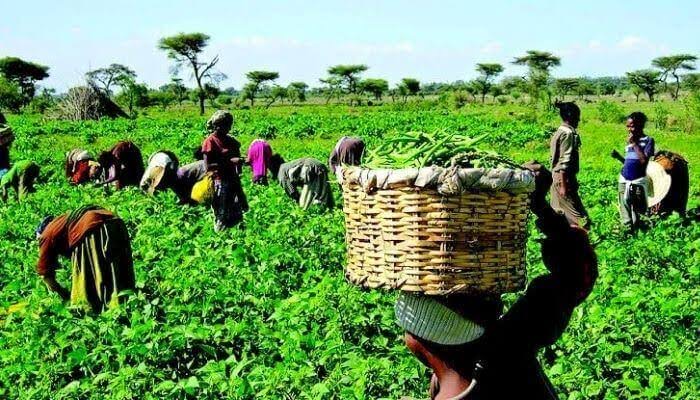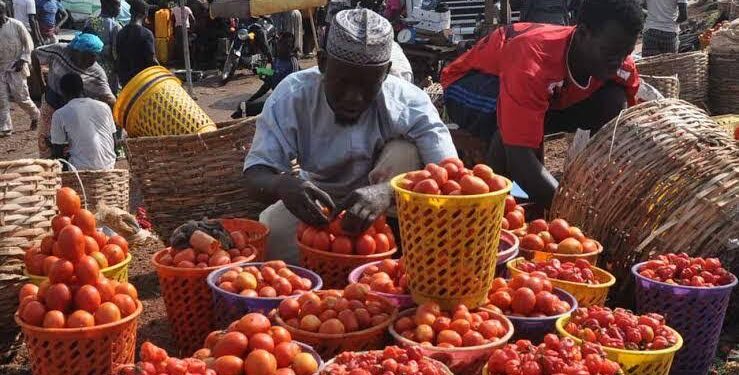In Nigeria, the rising cost of tomatoes has led many to seek alternatives such as cucumbers, carrots, and cayenne peppers for making traditional stews and other local dishes.
This shift is driven by the relentless increase in tomato prices, which has put a strain on consumers’ budgets. Journalists have observed that many Nigerians now use these substitutes in their cooking.
Recent market data indicates that the price of fresh tomatoes has surged by over 120% within the past month or two, compelling consumers to turn to more affordable options like pastes and other substitutes.
A market survey revealed that fresh tomato prices have skyrocketed to about N110,000 per large basket at Lagos’ Mile 12 market, compared to the N40,000 to N50,000 range just a few months ago.

In Lagos, Folake Aturamu, a mother of four, shared that the high cost of tomatoes has led her to explore new recipes. She now uses cayenne pepper, also known as ‘shombo’ or ‘tatashe’, as a tomato alternative. “I didn’t use fresh tomatoes in my recent stew. With shombo pepper and tomato paste, I achieved the desired thickness,” she explained.
Aturamu emphasized the financial strain caused by the increased tomato prices, making the vegetable unaffordable for her family.
Similarly, another mother of five has turned to tatashe pepper due to the prohibitive cost of tomatoes. She questioned the feasibility of buying just four tomatoes for N500.
Oluchi Duru, a mother of two, reported using cucumber in her stew, which has proven to be a good substitute. She combines tomato paste, tatashe pepper, and cucumber to create a satisfactory stew.
Elizabeth Onuoha, a businesswoman from Aba, has started using carrots in place of tomatoes. She finds that mixing carrots with cayenne and red bell peppers works well in both stews and jollof rice. “With this combination, you can hardly tell it’s not tomato-based,” she noted.
Many Nigerians have also shared on social media how they use cucumber to cope with high tomato prices. One user described making a cucumber sauce with onion, tatashe, and other peppers, achieving a pleasant aroma and taste.
Experts attribute the tomato price hike to seasonality, as tomatoes do not thrive during the rainy season, leading to price surges. Additionally, logistics challenges, including high fuel costs and middlemen fees, further drive up prices.
Sani Danladi, national chairman of the Association of Tomato Growers, Processors, and Marketers Association of Nigeria, confirmed that prices should decrease once the dry season begins, which is more favorable for tomato growth.

































